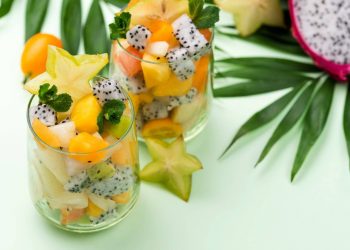5 Potassium-Rich Foods to Boost Your Hearing Health
Did you know that the foods you eat can significantly impact your hearing health? It might sound surprising, but a well-balanced diet can do wonders for your overall wellness, including your auditory system. One nutrient that’s often overlooked in conversations about hearing health is potassium. This mineral plays a crucial role in maintaining proper fluid balance in the body, which is vital for hearing. So, let’s dive into five potassium-rich foods that might just help you keep your ears in tip-top shape.
Why Potassium Matters for Hearing
Before we jump into the delicious foods, let’s talk about why potassium is so essential for hearing health. Potassium helps regulate the fluid in our inner ear, which is crucial for sound transmission. A deficiency in potassium can lead to fluid imbalance, potentially resulting in hearing issues. Some studies suggest that adequate potassium levels may protect against age-related hearing loss and even improve overall auditory function.
Research is ongoing, and while results are promising, it’s essential to consider potassium as part of a balanced diet rather than a silver bullet. So, let’s get into the foods that can help you boost your potassium intake!
1. Bananas: The Classic Choice
When you think of potassium, bananas probably come to mind first. One medium banana packs about 422 mg of potassium, making them an easy and tasty way to up your intake.
Pros:
- They’re convenient and portable, making them a perfect snack.
- Rich in fiber, bananas also contribute to digestive health.
Cons:
- Some people might find them too sugary, which could be a concern for those monitoring their sugar intake.
Fun Fact: Bananas contain tryptophan, which can help improve your mood. A happy mind might just lead to healthier listening!
2. Sweet Potatoes: The Nutrient Powerhouse
Sweet potatoes are another excellent source of potassium, with about sweet potato providing around 541 mg. They’re not just good for your ears; they also offer a wealth of vitamins A and C, which are beneficial for overall health.
Pros:
- They can be prepared in numerous ways: baked, mashed, or even as fries.
- Their high fiber content promotes gut health.
Cons:
- Some people might prefer regular potatoes for their versatility and taste.
Culinary Tip: Try roasting sweet potatoes with a sprinkle of cinnamon for a tasty side dish that’s both delicious and nutritious!
3. Spinach: The Leafy Green Wonder
If you’re looking for a potassium boost, look no further than spinach. One cup of cooked spinach contains around 839 mg of potassium. It’s also loaded with antioxidants, which are great for overall health.
Pros:
- Spinach is incredibly versatile; you can add it to salads, smoothies, or sauté it as a side dish.
- It’s low in calories, making it easy to incorporate into any diet.
Cons:
- Raw spinach contains oxalates, which can inhibit calcium absorption. Cooking it can reduce these compounds.
Health Hack: Throw a handful of spinach into your morning smoothie. You won’t even taste it, but your body will thank you!
4. Avocados: The Creamy Delight
Avocados are not just a trendy food; they’re also a potassium-rich powerhouse. One medium avocado contains about 975 mg of potassium. Plus, they’re packed with healthy fats.
Pros:
- They’re incredibly versatile and can be used in salads, spreads, or even smoothies.
- Rich in monounsaturated fats, avocados can help lower bad cholesterol levels.
Cons:
- They can be high in calories, so moderation is key if you’re watching your weight.
Culinary Tip: Make some guacamole or simply slice it on toast for a potassium-rich breakfast!
5. Oranges: The Juicy Refreshment
Oranges are often touted for their vitamin C content, but they also provide a decent amount of potassium—about 237 mg per medium orange.
Pros:
- They’re hydrating and refreshing, perfect for a hot day.
- Oranges are also rich in antioxidants.
Cons:
- Some people may experience acidity or heartburn when consuming citrus fruits.
Refreshing Idea: Enjoy an orange as a snack or toss some segments into a spinach salad for an extra burst of flavor and nutrition!
FAQs About Potassium and Hearing Health
1. How much potassium do I need daily?
The recommended daily intake for adults is about 2,500 to 3,000 mg. However, individual needs can vary based on factors like age, activity level, and health conditions.
2. Can I get too much potassium?
Yes, excessive potassium can lead to hyperkalemia, which can be dangerous. It’s best to consult a healthcare provider if you’re considering high-potassium diets, especially if you have kidney issues.
3. Are there any other benefits to eating potassium-rich foods?
Absolutely! Besides supporting hearing health, potassium can help regulate blood pressure, support muscle function, and maintain fluid balance in your body.
4. Can I take potassium supplements instead of eating foods?
While supplements can help, it’s usually best to get your nutrients from whole foods, which provide additional vitamins and minerals.
Conclusion: A Delicious Path to Better Hearing
Incorporating potassium-rich foods into your diet can be a simple yet effective way to support your hearing health. Whether you prefer bananas, sweet potatoes, spinach, avocados, or oranges, there are plenty of delicious options to choose from. Remember, it’s not just about one nutrient; a balanced diet filled with various vitamins and minerals will contribute to your overall well-being.
So why not start today? Grab a banana, whip up some avocado toast, or enjoy a sweet potato dish. Your ears (and your entire body) will thank you!
This article is for educational purposes only and is not a substitute for professional medical advice. Always consult a qualified healthcare provider before making changes to your health routine.
References
- Heller, A., & Smith, R. (2020). The Role of Potassium in Hearing Health. Journal of Nutritional Science. https://www.journalofnutritionscience.com/article/role-of-potassium-in-hearing-health
- Mayo Clinic Staff. (2021). Potassium: Why You Need It. Mayo Clinic. https://www.mayoclinic.org/healthy-lifestyle/nutrition-and-healthy-eating/in-depth/potassium/art-20045592
- National Institutes of Health. (2022). Potassium Fact Sheet for Health Professionals. https://ods.od.nih.gov/factsheets/Potassium-HealthProfessional/
Get Your FREE Natural Health Guide!
Subscribe now and receive our exclusive ebook packed with natural health tips, practical wellness advice, and easy lifestyle changes — delivered straight to your inbox.















